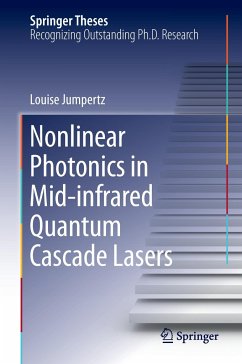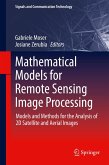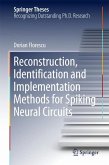This thesis presents the first comprehensive analysis of quantum cascade laser nonlinear dynamics and includes the first observation of a temporal chaotic behavior in quantum cascade lasers. It also provides the first analysis of optical instabilities in the mid-infrared range.
Mid-infrared quantum cascade lasers are unipolar semiconductor lasers, which have become widely used in applications such as gas spectroscopy, free-space communications or optical countermeasures. Applying external perturbations such as optical feedback or optical injection leads to a strong modification of the quantum cascade laser properties. Optical feedback impacts the static properties of mid-infrared Fabry-Perot and distributed feedback quantum cascade lasers, inducing power increase; threshold reduction; modification of the optical spectrum, which can become either single- or multimode; and enhanced beam quality in broad-area transverse multimode lasers. It also leads to a different dynamical behavior, and a quantum cascade laser subject to optical feedback can oscillate periodically or even become chaotic. A quantum cascade laser under external control could therefore be a source with enhanced properties for the usual mid-infrared applications, but could also address new applications such as tunable photonic oscillators, extreme events generators, chaotic Light Detection and Ranging (LIDAR), chaos-based secured communications or unpredictable countermeasures.
Mid-infrared quantum cascade lasers are unipolar semiconductor lasers, which have become widely used in applications such as gas spectroscopy, free-space communications or optical countermeasures. Applying external perturbations such as optical feedback or optical injection leads to a strong modification of the quantum cascade laser properties. Optical feedback impacts the static properties of mid-infrared Fabry-Perot and distributed feedback quantum cascade lasers, inducing power increase; threshold reduction; modification of the optical spectrum, which can become either single- or multimode; and enhanced beam quality in broad-area transverse multimode lasers. It also leads to a different dynamical behavior, and a quantum cascade laser subject to optical feedback can oscillate periodically or even become chaotic. A quantum cascade laser under external control could therefore be a source with enhanced properties for the usual mid-infrared applications, but could also address new applications such as tunable photonic oscillators, extreme events generators, chaotic Light Detection and Ranging (LIDAR), chaos-based secured communications or unpredictable countermeasures.








